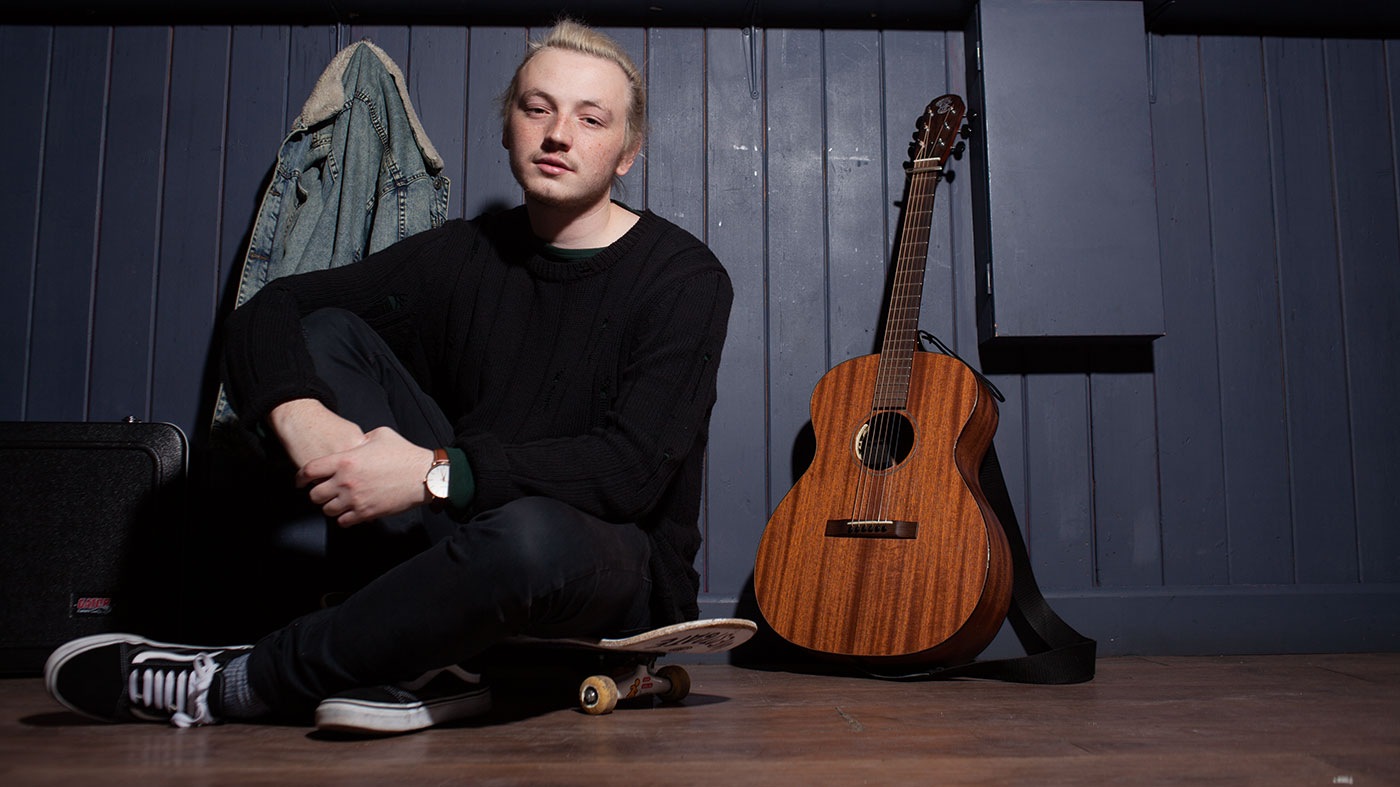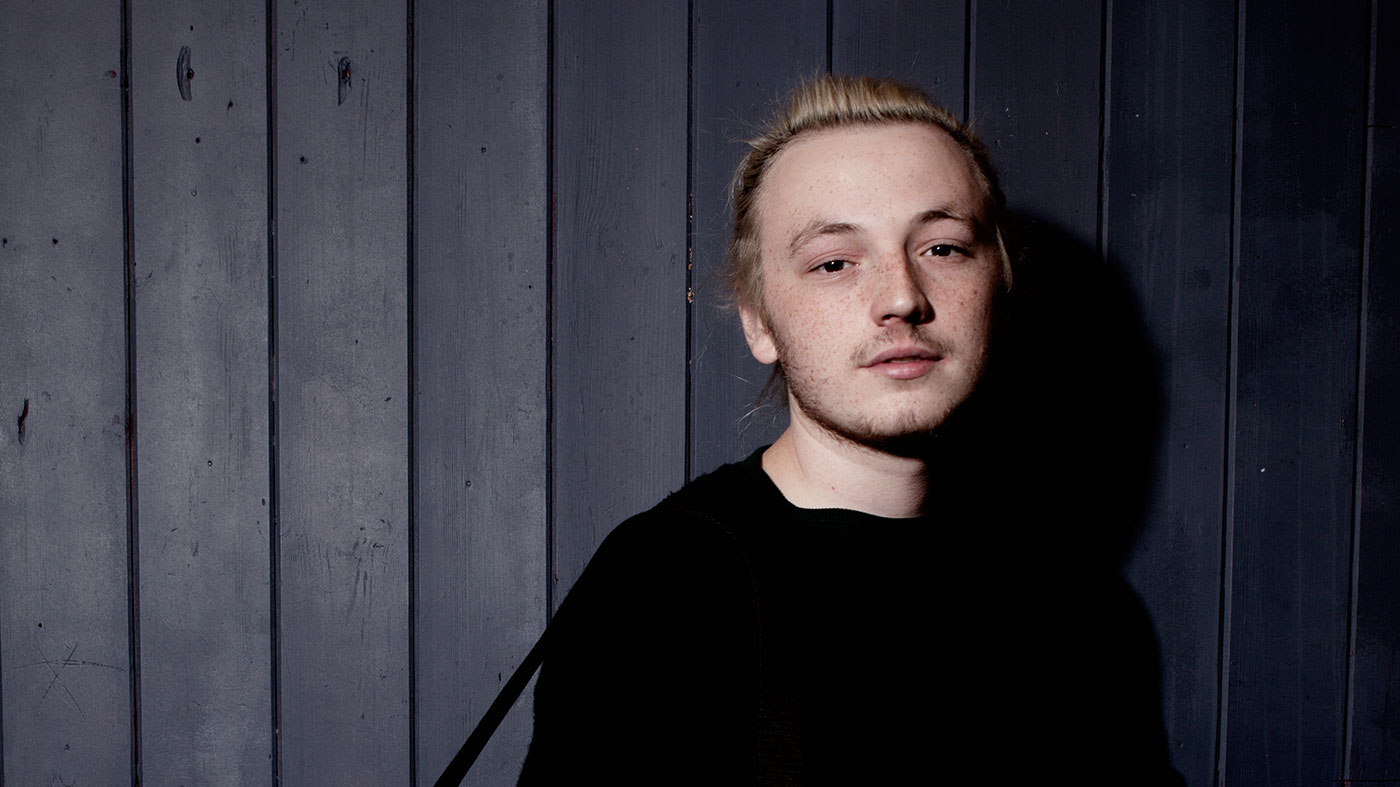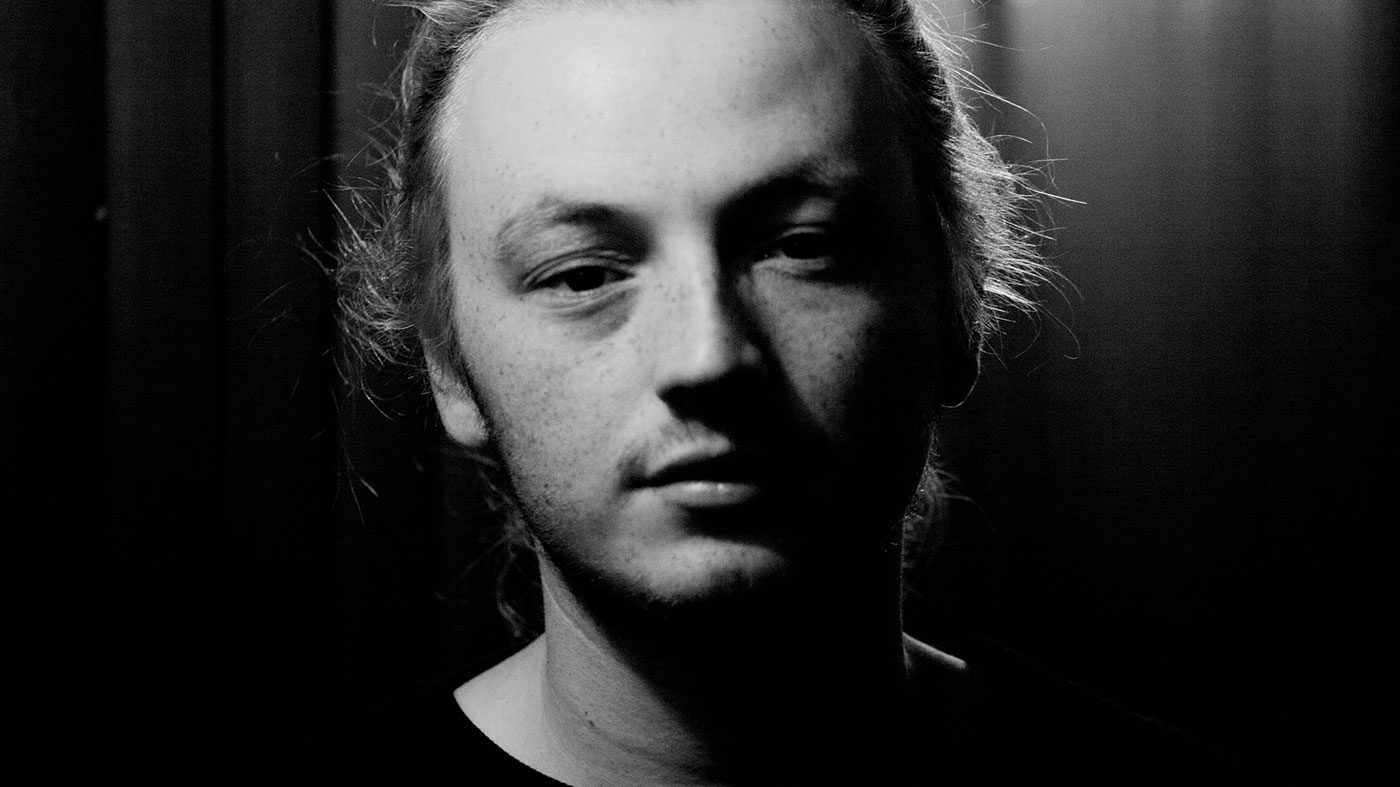Lewis Watson talks new album Midnight, alternate tunings and slow-cooking songs
The UK singer songwriter on his Cooking Vinyl debut

Introduction
As we sit down with Lewis Watson, he’s preparing himself for a gig in Leicester as he rounds off a small warm-up tour in preparation for his new album Midnight.
But more than just a new album, 2017 represents something of a year of reinvention for the Oxfordshire-born singer-songwriter.
We were doing takes and then playing cricket, or skateboarding or going for a run around the garden
Since his debut album The Morning came out in 2014, he’s left his deal with Warner Music Group and taken up with the independent Cooking Vinyl, a move that has allowed him to reassess and refocus his plans.
Watson is in a relaxed, confident mood when we start to chat and excited about his second release. How, we ask, has his approach to making this new record differed from the one he took on his debut, given the label move?
“I wanted to be as prepared as possible with everything coming directly from me. I got my friend Anthony West, who’s half of Oh Wonder, to produce the record. We went away to Vale Studios in Warwickshire for two and a half weeks, just me, him and my band. It was a really nice experience - extremely different to the first record which was made over two-and-a-half years.
“We lived in a bubble in the studio and worked for way too many hours a day. Vale Studios is in like a manor house, it’s incredible. We were doing takes and then playing cricket, or skateboarding or going for a run around the garden. It is such a cool place to make a record.”

What's Cooking?
The new approach that led to Watson leaving Warner Brothers and finding a new home with Cooking Vinyl seems to have been somewhat liberating.
“After my A&R guy, Thomas, left Warner I felt like didn’t have a champion at the label who was as passionate about our stuff, so I just thought the best thing for me was to exercise my right to walk away. I think it could’ve been a great model for another musician, but the major label model is going to start working less and less so it was a great luxury to be able to walk away from that.”
From the first track to the last there was purpose behind every decision made
He adds: “I did this second album without a label. After the first track was played on radio all these labels started getting in touch. There were a few that had shown an interest that were more indie. I looked at all their rosters, what they’ve done and at their legacies and Cooking Vinyl really stood out.”
Part of Cooking Vinyl’s roster includes one of Watson’s early influences, which also may have played its part… “The reason I picked up a guitar was City And Colour, which is a guy called Dallas Green. He’s signed to Cooking Vinyl, which was one of the key points in my decision - one of many but one of the key ones.”
Free from the shackles of a major label’s interference, how were the songs tackled and was it a different process this time around?
“Ant and I wrote a lot of the songs together so we had a real feel for how we wanted the songs to sound. It was so great to be able to direct the band. I have an incredible band; we have real chemistry and it was a great opportunity to just feel the track and just do what we wanted.
“The track Little Light was written with just acoustic, piano and my voice, but we got in to the studio and I asked Rob [the drummer] to try a shuffle beat and he said ‘I wish you’d told me - I haven’t tried that kind of beat for years’. The final version of that song is either the second or third take and he nailed it.”
Watson agrees that this approach gave the songs life, getting them tracked before they became too tired by multiple takes. It appears it was a more focused process than the first record…
“Definitely, especially after recording the first album with six or seven different producers in eight or nine different studios. The album is more fluid and it’s more coherent - from the first track to the last there was purpose behind every decision made. It was made with a big chart in front of us so we said, ‘We have drums to do for this tomorrow, well this other one has similar energy so maybe we should do them after each other’, that kind of thing. It was all very calculated while staying very organic.”

Melodic magic
It sounds like Watson, West and the band lived the 70s Zeppelin-esque recording dream for those couple of summer weeks and this organic approach really helped them. Did this same approach go for the writing process?
“I wish there was a formula to it,” Watson laughs. “From what I can gather, I will find chords I enjoy playing and get a real skeleton of the music of a song. Then I’ll start babbling melodies mainly, sounds not words, and every now and then a word will come out and I’ll think ‘Oh, I like that’. I’ll begin to form melodies around that word and start thinking ‘Does that mean anything to me?’ If it does I’ll think about that and start writing lyrics around that melody.
It might take me three months to write a song but I’m going to sing that song for the rest of my life, so it’s worth it
“I think it’s a rewarding writing process - it makes songs extremely rich in terms of longevity because they mean a lot to me. It might take me three months to write a song but I’m going to sing that song for the rest of my life, so it’s worth it because I need to be completely invested in that music.”
Watson has been known for his connection with mahogany guitars, including one made for him by Patrick James Eggle. Did that guitar factor heavily in the recording process?
“I used a few guitars. I used the Eggle a lot, but also my Martin 00-15M, which has a fairly similar sound, though it’s a bit louder and the lows are a bit more prominent. We used that Martin on a lot of the acoustic tracks.”
Listening to the album, it sounds as though Watson is no stranger to different tunings.
“We played plenty of different tunings. My standard tuning is a tone down, and it’s one of the reasons I always play mahogany guitars because they sound so rich and low down there. There are a few open tunings on the album: DADADE is one of my favourite tunings, and that’s what Deep The Water is written in. There’s a song called Slumber with Lucy Rose that’s in the same tuning, then there’s When The Water Meets The Mountain, which is an open E tuning I believe.”
So does Watson find his own tunings? It sounds like he experiments a bit…
“DADADE was one that I was messing around with because I’ve always been a fan of DADGAD and DADF#AD, which I think are beautiful tunings. I was playing around with that when we were writing.
“Ant would say ‘I’ve always liked this one’ and we’d put it into DADADE on my guitar. Sometimes we’d tune either the bottom or top D up to E, which helps it cut through. On the first record it was all recorded on one guitar, which was a nice thing, but now I’m older I realise how much different character you get from different guitars and the different sound you can achieve. I’ve definitely exploited that on this album”
Watson seems comfortable with the path he has made for himself. Now armed with the confidence of someone honing his chosen craft on his own terms, and flanked by his ever loyal band and the chemistry and musical understanding they are building, 2017 could just be his for the taking.

